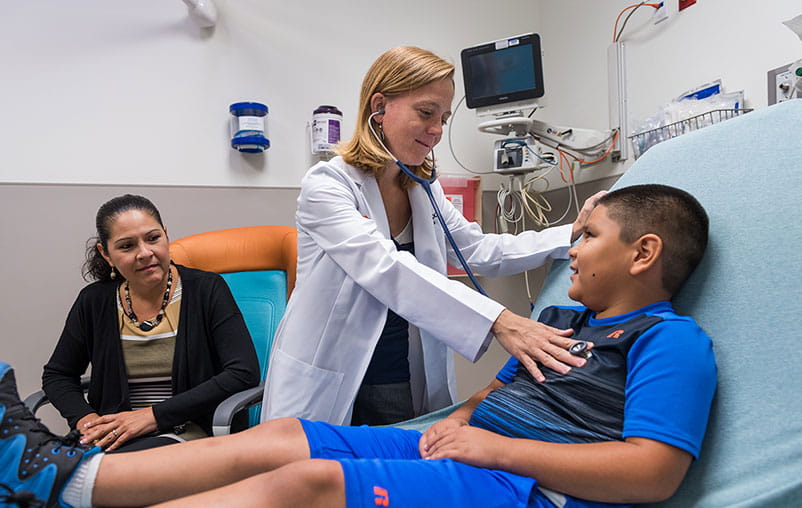Many families are starting to feel the strain of having to remain at home during the coronavirus outbreak. And while parents may be pulling their hair out trying to help their kids with school and keep them entertained, many are overlooking the amount of stress and anxiety their teens and kids may be feeling. So, how do we all stay sane while stuck at home?
Good communication with your kids and teens is key
Being together with your family for long periods of time can be stressful and after a while, your family may start to grate on each other’s nerves. This can be especially true for teens and kids who are missing their normal routine of school, friends and extracurricular activities. In order to prevent additional strain on kids, parents should take the time to make sure they are communicating well with their children.
According to Norma Balli-Borrero, a licensed professional counselor intern at UT Teen Health Clinic at University Health, it can be normal for your family to be fighting or bickering more, “It’s ok to be having a hard time right now,” said Balli-Borrero, “There’s no such thing as a perfect family. There’s no such thing as a perfect parent. Issues are going to come up, tempers are going to flare. It’s going to happen and that’s ok. Working together to find a shared communication style can really help make this time more peaceful.”
Balli-Borrero suggests doing the following to ensure you are keeping the communication channels open with your kids:
- Fight “fair”
- No name-calling
- No yelling
- Find a way to share needs and wants through a common vocabulary
Give your kids space if they need it
Being in close quarters with your kids can cause issues to arise faster. If possible, give your kids the time and space they may need to relax and decompress.
There are many ways you can give your kids space while still striving for better family connection. Some of these ways include:
- Make a routine that everyone agrees on. Schedule time for schoolwork, meals, exercise and even family time. Having a routine will make your child feel more secure and ease stress.
- Explore shared values, ideas and thoughts.
- Make time for yourself as a parent, couple, or teen.
- Come together to spend quality time with each other.
Look out for depression in kids and teens
Being isolated for so long can cause some kids to have the blues. While it may be common for your kids to be feeling a little down, parents should stay vigilant and make sure that kids and teens don’t become depressed.
Some common signs of depression in kids and teens include:
- Loss of interested in activities
- Difficulties concentrating
- Talking about death or dying
- Appetite or weight changes
- Agitation or aggression
- Low self-esteem or self-worth
“Please reach out for help when you need it,” Balli-Borrero adds.
Also, remember there are many different resources you can turn to for help if you suspect your child is depressed.
Additionally, help your teens beat the blues by teaching them to manage their thoughts. Some ways you can do this are:
- Have kids take time out of their day to check in with their thoughts, and if they want, discuss them with you.
- Help kids and teens recognize how their thoughts could potentially be influencing their behaviors and keeping them from enjoying the moment.
Finally, make sure you take the time to talk to and reassure your kids about what you and your family are doing to stay safe during the coronavirus outbreak. Good communication and openness will help your child better cope with the stressful circumstances of this time.
University Health’s Teen Health Clinic, in partnership with UT Health San Antonio, focuses on comprehensive healthcare needs for pre-teens, teens and young adults, 10-24 years old. For more information, you can contact us at 210-358-TALK.




